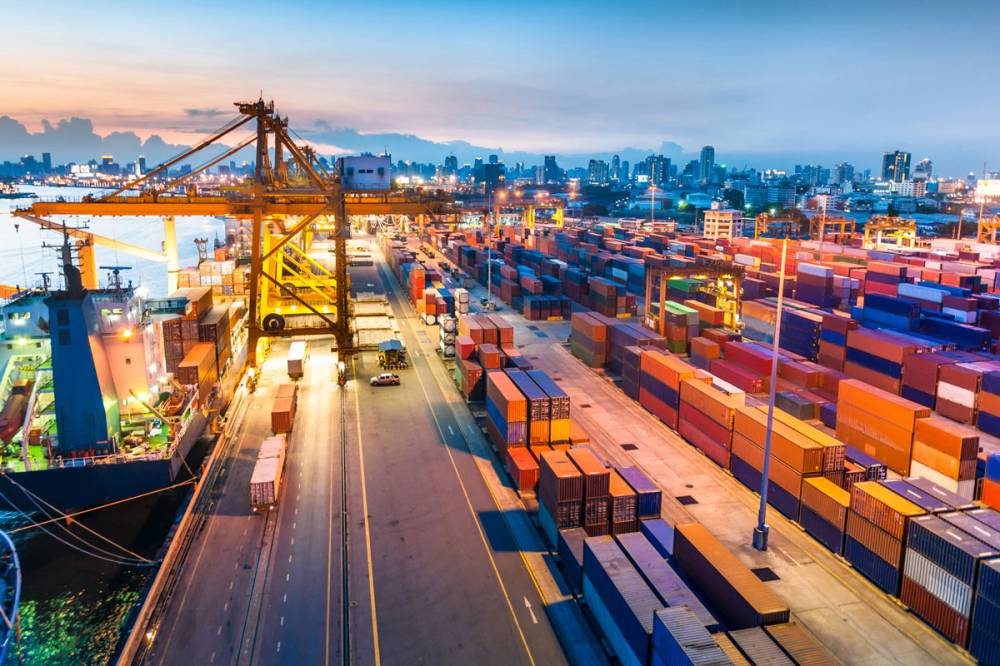RIO DE JANEIRO, BRAZIL – From January to May of this year, the state of Rio de Janeiro recorded a 15 percent drop in export revenues, with a negative balance of US$2.4 billion (R$13 billion), according to the June issue of the FIRJAN’s (Industry Federation of the State of Rio de Janeiro) Rio Exporta newsletter. In the period, the state totaled US$10.3 billion in exports and US$12.8 billion in imports.

The main reason for the result in exports was the seven percent drop in oil sales, coupled with the impact of the Covid-19 pandemic on economic activity. This drop was mainly due to lower crude oil shipments to China (-27 percent) and the United States (-47 percent), in the year-to-date total. The negative result in the market may be explained by the lockdown in these countries in March, April, and May, when there was a significant reduction in fuel consumption.
“In the current pandemic scenario, contagion, lockdowns and potential interruptions in production chains occur in ‘waves’. The crisis stages do not occur in all countries and on all continents at the same time, which is highly damaging to the industry. This makes it difficult for companies to plan their logistics, to make economic projections and to prospective international business”, explains Giorgio Rossi, coordinator of FIRJAN International, recalling that the main focus of the pandemic was once located in China, Italy, Spain, UK, USA and is currently in Latin America.
The reduction in exports was also a consequence of the drop in shipments of industrialized products (-33 percent) in the year to date. Exports to the European Union decreased the most (-48 percent), driven by the 54 percent drop in sales to the Dutch market, mainly of iron or flexible steel pipes.
From January to May, Rio de Janeiro’s exports to Mercosur partner Uruguay grew substantially (+94 percent). Africa followed the same trend (+9 percent), with an increase mainly in fuel oil.
Despite the decline, Rio de Janeiro holds the second position among the states with the highest international flow, recording a 15 percent share in the country’s trade balance, second only to São Paulo.
Purchase of supplies to fight Covid-19
The increase in imports by the state of Rio de Janeiro reflected a 123 percent increase in industrial goods purchases (US$11.3 billion) from January to May. The main industries in the state of Rio de Janeiro that showed an increase in imports were Other transport equipment (US$5.2 billion, an increase of 124 percent); Machinery and Equipment (US$2.3 billion, up 462 percent); and Rubber and plastic products (US$333 million, up 334 percent).
In the year to date, compared to the same period in 2019, the newsletter records an increase of 167 percent in purchases of supplies to fight Covid-19.
Future of foreign trade and tax equality
“If the pace of resumption and reopening of the European, US, and Chinese economies is maintained and there is no new lockdown, it is possible that a resumption of Rio de Janeiro’s exports will begin. But we will have to wait for this scenario, which is constantly evolving, to consolidate”, estimates Rossi.
Rodrigo Santiago, president of the FIRJAN Business Council of Economics and of the Union of the Rubber Artifacts Industries of the State of Rio de Janeiro (SINDBORJ), says the rubber sector, which is very large, has been greatly affected by Covid-19, which has caused a crisis in both demand and supply.
“The important thing for the foreign trade agenda is for Brazil to be attentive and increasingly inserted in global value chains. And to do so, the industry needs to improve its competitiveness, which requires tax equality measures. It is necessary to encourage and protect the investment made in Brazil,” he stresses.

